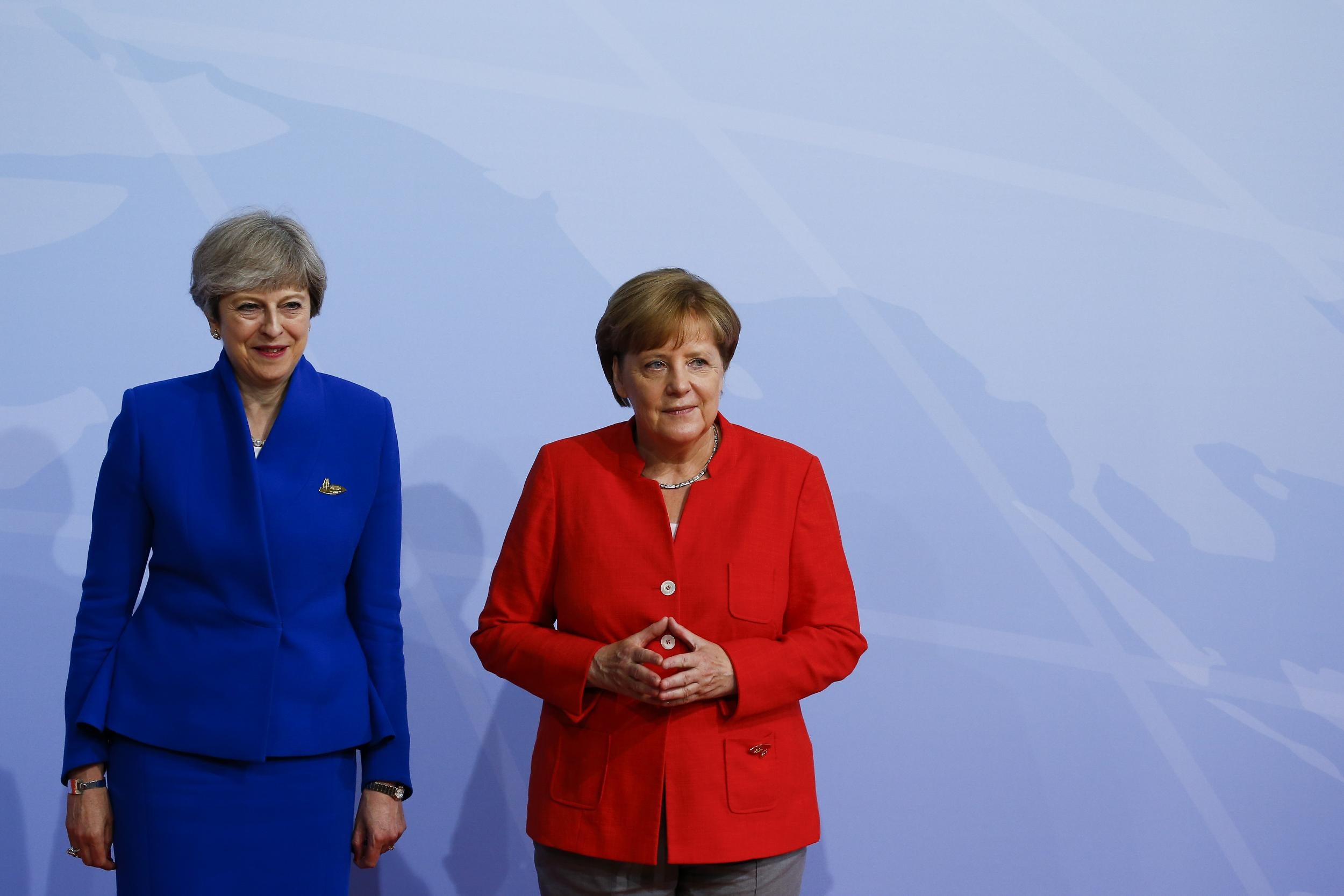Brexit talks: Theresa May meets Angela Merkel at summit in Estonia to push for progress over EU citizens' rights
Downing Street said the two leaders agreed the need to settle the issue of EU citizens' rights quickly

Theresa May has met German Chancellor Angela Merkel at a summit in Estonia in a bid to push for progress in Brexit talks.
The two leaders agreed on the importance of settling the issue of EU citizens’ rights as soon as possible, with the next round of talks looming.
Citizens’ rights, the UK’s ‘divorce bill’ and the Irish border are the three critical issues on which Brussels is demanding concessions before they allow talks to progress to future trade.
Brexiteers have been hopeful that after the German elections an empowered Ms Merkel would act as a catalyst for progress in negotiations, given European Commission chief Jean Claude Juncker said on Friday it would take a “miracle” for talks to progress next month.
A Downing Street spokesman confirmed Ms May and Ms Merkel had held a bilateral meeting at the Tallinn Digital Summit in Estonia and that the Prime Minister had reiterated her commitment to the UK being the strongest friend to the EU after Brexit.
The spokesman said: “She said her Florence speech had been intended to create momentum in the ongoing talks and that the response from the EU 27 had been constructive.
“Chancellor Merkel welcomed the speech, and noted the good progress that had been made in negotiations this week. She looked forward to the next round of talks in early October.”
The spokesman went on: “The PM pointed to the commitment made in her Florence speech to incorporate the agreement reached on citizens' rights fully into UK law and make sure the UK courts can refer directly to it.
“The PM also stressed it was in everybody's interests to agree to a time-limited implementation period once Britain leaves the EU, to provide certainty to businesses and others in both Britain and the EU.”
Ms May also gave a speech in Tallinn, less than two hundred kilometres from the Russian border, underlining the importance of the UK military and intelligence services to broader European security.
She has proposed a post-Brexit security treaty with the EU, but has faced accusations that she is using cooperation as leverage to secure a better future trade agreement.
In her speech in Florence, Ms May committed to a Brexit transition period of at least two years, in which the UK would stay in the single market and customs union, abiding by its rules and structures, including free movement.

Ministers had hoped the move would open up the way for negotiations to move on to discussing a potential future trade deal, but both chief EU negotiator Michel Barnier and Mr Juncker have indicated “sufficient progress” is yet to be met.
Mr Barnier did acknowledge that the speech in Florence had created a “new dynamic” in negotiations with talks moving forward on certain issues.
But there is expected to be little movement until the end of Tory conference, where the party faithful will expect her to take a tough line on negotiations with the EU.
Reports emerged on Friday that the UK may be willing to give more clarity around its offer on settling financial obligations after the conference is finished.
Join our commenting forum
Join thought-provoking conversations, follow other Independent readers and see their replies
Comments
Bookmark popover
Removed from bookmarks